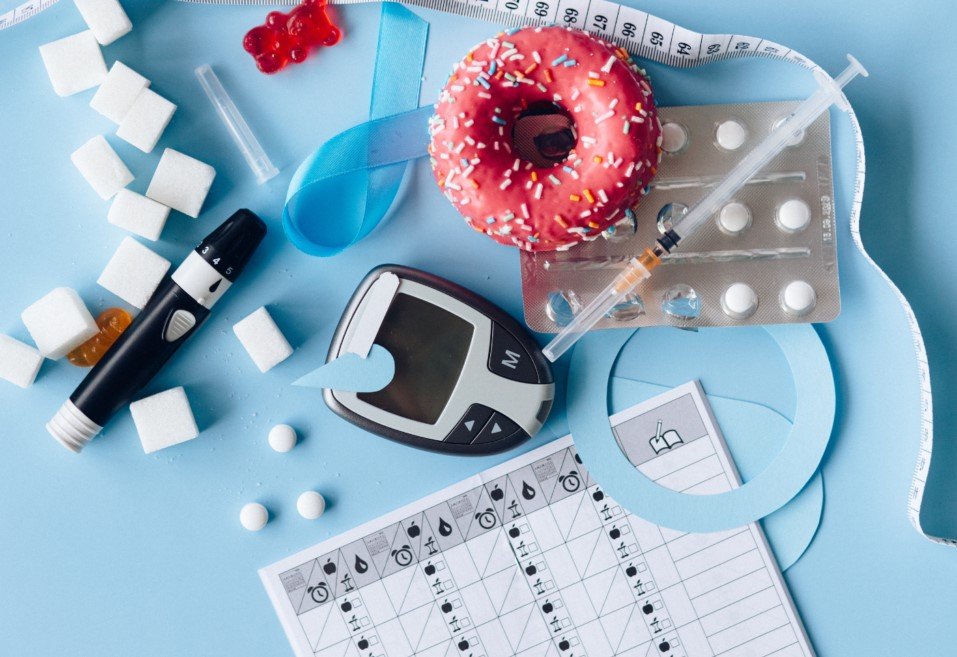Managing diabetes effectively is crucial for maintaining overall health and preventing serious complications. This comprehensive article will explore various strategies and techniques to help control blood sugar levels, highlighting the importance of diabetes management in leading a fulfilling life. Understanding the interplay of diet, exercise, and medication can empower individuals with diabetes to take charge of their health and improve their quality of life.
Understanding Diabetes Management
Diabetes management refers to the strategies and lifestyle changes implemented to control blood sugar levels. This encompasses a holistic approach that includes dietary modifications, regular physical activity, glucose monitoring, medication management, and ongoing education. By actively managing these elements, individuals with diabetes can reduce the risk of both immediate and long-term complications.
The Role of Diet in Diabetes Management
A well-planned diet is one of the cornerstones of effective diabetes management. Choosing foods that have a low glycemic index can help stabilize blood sugar levels. Whole grains, legumes, fruits, and vegetables should comprise the bulk of the diet. Portion control is also essential; understanding serving sizes can prevent unexpected spikes in blood sugar levels. Additionally, consulting with a registered dietitian can provide tailored meal plans that suit individual needs and preferences.
Regular Physical Activity
Physical activity plays a vital role in diabetes management. Engaging in regular exercise not only helps with weight management, but also enhances insulin sensitivity. This means that the body can use insulin more effectively, leading to better blood sugar control. Aerobic exercises, strength training, and flexibility exercises all have their unique benefits. Aim for at least 150 minutes of moderate aerobic activity each week, along with muscle-strengthening activities on two or more days.
Monitoring Blood Sugar Levels
Regular monitoring of blood sugar levels is crucial for effective diabetes management. This allows individuals to understand how various factors—such as diet, exercise, stress, and medication—affect their blood sugar levels. Keeping a log of readings can help spot trends and make informed decisions regarding dietary and lifestyle changes. Continuous glucose monitors (CGMs) have also made it easier to track glucose levels throughout the day, enabling proactive management.
Medication Management
For many individuals with diabetes, lifestyle changes alone may not be enough to control blood sugar levels. Medications, including oral medications and insulin therapy, may be necessary. Understanding how these medications work, their potential side effects, and how they fit into a daily routine is vital for successful diabetes management. Regular consultations with healthcare providers can help ensure that the medication regimen is appropriate and effective.
The Importance of Routine Check-Ups
Routine check-ups with healthcare providers are essential in diabetes management. Regular blood tests, such as HbA1c, can provide insight into long-term blood sugar control. Additionally, healthcare professionals can monitor for potential complications, such as neuropathy, retinopathy, and cardiovascular issues. These consultations are also an opportunity to address concerns, adjust treatment plans, and receive guidance on new diabetes management techniques.
The Role of Stress Management
Stress can significantly impact blood sugar levels, making stress management an integral part of diabetes management. Techniques such as mindfulness, meditation, yoga, and deep-breathing exercises can help reduce stress and improve overall well-being. Incorporating relaxation techniques into daily routines not only benefits mental health but also supports better blood sugar control.
Building a Support Network
Having a strong support network can make a significant difference in managing diabetes. Friends, family, and support groups can provide encouragement and motivation. Connecting with individuals who understand the challenges of living with diabetes can also foster a sense of belonging. Support groups, whether in-person or online, can serve as valuable resources for sharing experiences, tips, and insights.
Staying Informed and Engaged
Staying informed about diabetes management is crucial in an ever-evolving field. New research, treatment options, and technologies are continuously emerging. Engaging with educational resources—from formal classes to online forums—can help individuals stay updated on best practices and novel strategies for managing their condition.
Conclusion: A Lifelong Journey
Diabetes management is an ongoing process that requires dedication, determination, and education. By implementing the strategies discussed in this article, individuals with diabetes can lead healthy and fulfilling lives. Understanding the importance of diet, exercise, medication management, regular check-ups, stress management, support networks, and staying informed can empower individuals to take control of their health and achieve better blood sugar control. With a proactive approach to diabetes management, individuals can navigate the challenges of living with diabetes and improve their overall well-being for years to come. So let’s continue our journey towards better diabetes management together! Let’s stay educated and motivated while embracing a healthy lifestyle that benefits our mind and body. Remember – managing your diabetes is not a sprint, it’s a marathon. And with the right tools and support, you can successfully navigate this lifelong journey. Happy managing!
